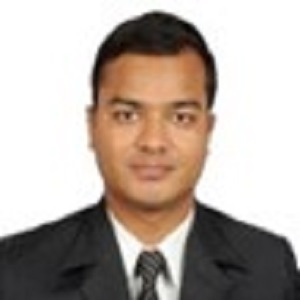Abstract Detail

Bikash Desar
Patan academy of health sciences, Nepal
Abstract
Oral health is a key indicator of overall health, well-being and quality of life. It encompasses a range of diseases and conditions that include dental caries, periodontal (gum) disease, tooth loss, oral cancer, oro-dental trauma, noma and birth defects such as cleft lip and palate. The Global Burden of Disease Study 2019 estimated that oral diseases affect close to 3.5 billion people worldwide. According to the International Agency for Research on Cancer, cancers of the lip and oral cavity are among the top 20 most common cancers worldwide, with nearly 180 000 deaths each year. Most oral diseases and conditions share modifiable risk factors with the leading noncommunicable diseases (cardiovascular diseases, cancer, chronic respiratory diseases and diabetes). These risk factors include tobacco use, alcohol consumption and unhealthy diets high in free sugars, all of which are increasing at the global level. There is a proven relationship between oral and general health. It is reported, for example, that diabetes is linked with the development and progression of periodontitis. Moreover, there is a causal link between high consumption of sugars and diabetes, obesity and dental caries. Poor oral health causes millions of people to suffer from devastating pain and increases the out-of-pocket financial burden for society. Oral diseases can affect an individual’s effectiveness in school and work settings and can cause social and personal problems. The psychosocial impact of many oral diseases significantly reduces quality of life. While the global burden of untreated dental caries in primary and permanent teeth has remained relatively unchanged over the past 30 years, the overall burden of oral health conditions on services is likely to keep increasing because of population growth and aging. Among the Nepalese people in city areas awareness via different medias and education level of people has decreased the dental disease whereas in rural areas still lack of knowledge about dental diseases and its impact on life has still increased the oral diseases.Biography
Dr. Bikash Desar working as Associate Professor in the Dental Department at Patan Academy of Health Sciences; Patan Hospital. I passed Bachelor of Dental Surgery (BDS), from Universal College of Medical Sciences, Bhairawa on 2006, affiliated to Tribhuvan University, on 2006. Then i started working as Dental Surgeon at the same college being in-charge of department of Oral and Maxillofacial surgery till 2010 January 10. After gaining experience for four years as Dental Surgeon I went for post graduation in Ukraine at Crimea Medical University, named after S.I Grievosky. I completed my post graduation studies on 2013 February. Then after completion of my masters degree I joined Kantipur Dental College Teaching Hospital and Research Center as Lecturer at the department of Oral and maxillofacial surgery, where I taught BDS students and guided post graduation students of various departments,(orthodontics, oral and maxillofacial pathology, community dentisrty, prosthodontics). At the same time did more than 40,000 minor surgeries and more than 3,500 major surgeries under loacal and general anesthesia. Working for five years two months and twenty days I got selected as Assistant Professor and later on promoted as Associate Professor at Patan Academy of Health Sciences, Patan Hospital, also appointed as Chief of Department. I have been working as Editorial Board Member for many international scientific journals since 2016. My eight Research Scientific journals have been published on International Journals. Have conducted many dental camps in rural areas of Nepal and planning for providing free dental treatment through Patan District Hospital once a month at Chapagaon-11, Godavari Muncipility. Have involved in making policies in governmental level for mercury free dentistry, involved in making new curriculum for BDS and MDS in Tribhuvan and Kathmandu universities. Have fulfilled important roles being internal and external examiners in many university examinations.
